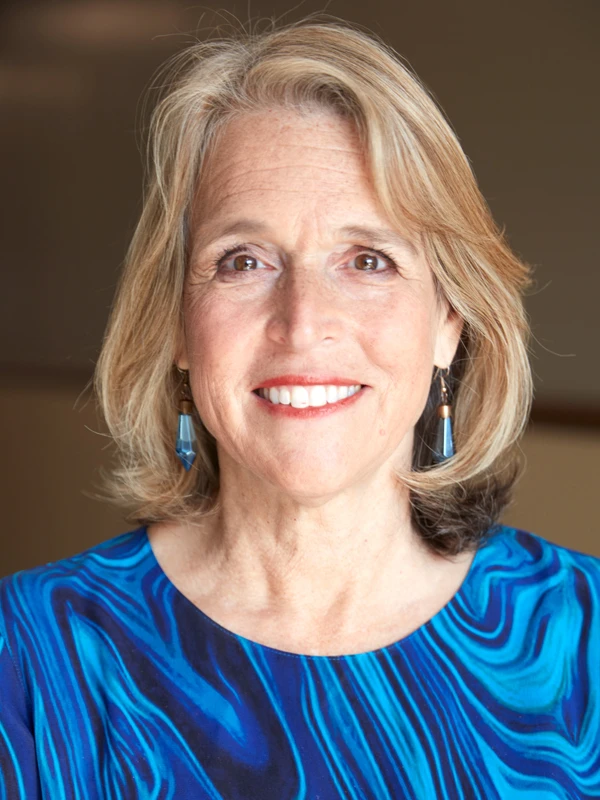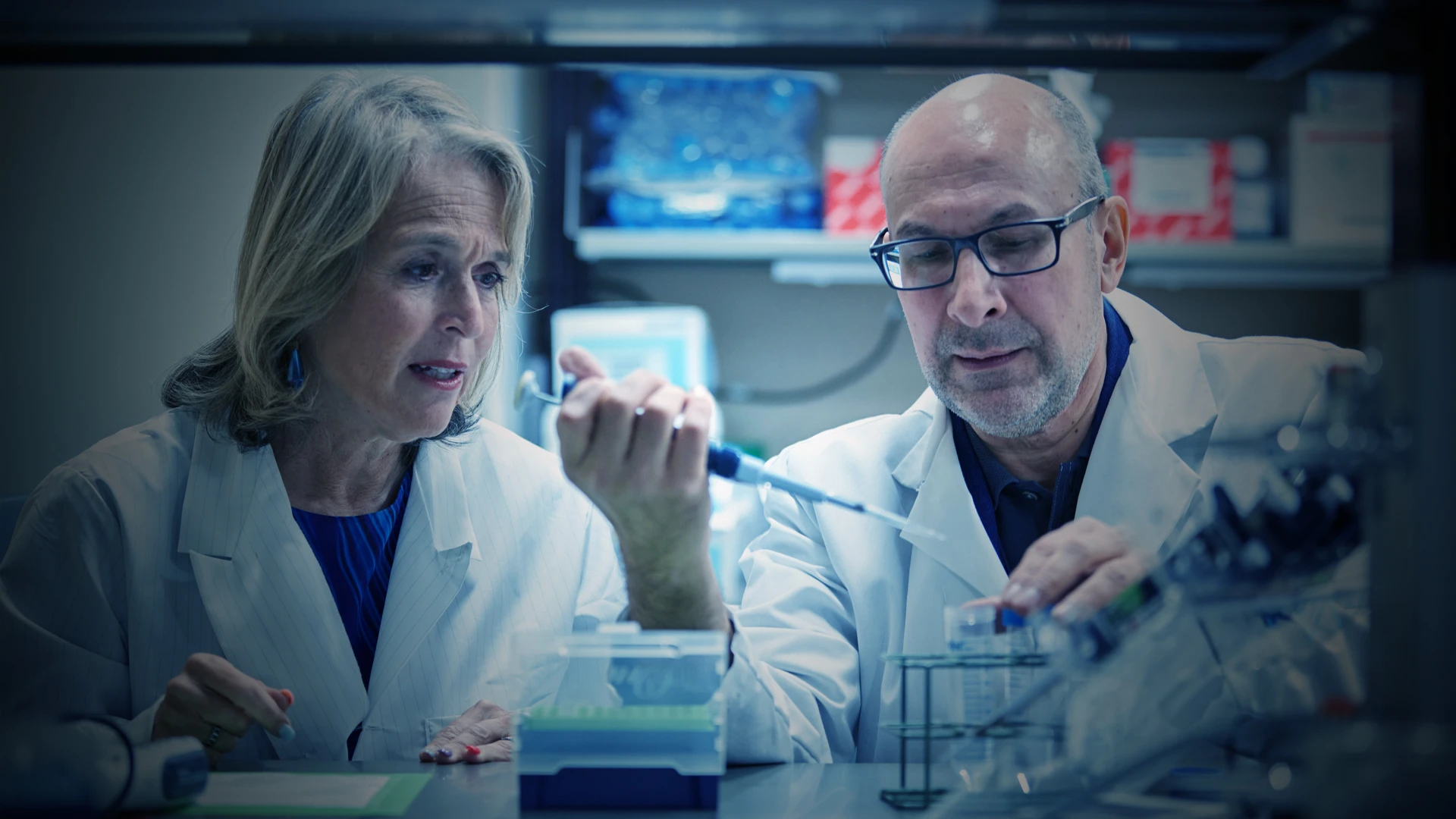Mount Sinai researcher Rachel Yehuda, PhD, knows that the concept of treating post-traumatic stress disorder (PTSD) with psychedelics has its share of skeptics. She used to be among them.
But Dr. Yehuda has seen the potential efficacy of this approach through her own training and research. She is conducting a groundbreaking study to assess the effects of administering 3,4-methylenedioxy-methamphetamine (MDMA) to 60 veterans as part of psychotherapy at the Mount Sinai-affiliated James J. Peters VA Medical Center. This treatment modality consists of three eight-hour guided therapy sessions, pre-administration consultations, and post-administration integration.
In prior studies, two-thirds of participants who received MDMA-assisted psychotherapy no longer had PTSD. But veterans often respond less well than civilians to conventional treatments for PTSD because of the sheer complexity and nature of the trauma they have experienced, as well as its aftermath.
The clinical trial at the VA is an exciting development, but Dr. Yehuda’s study has an additional component that could be a real game changer in this relatively nascent field of research. Using functional magnetic resonance imaging and blood samples collected from participants, Dr. Yehuda and her team are looking for prognostic biomarkers and brain signals that demonstrate recovery—enabling the identification of patients who are more likely to respond to this treatment modality.

From left to right: Miryam Sperka, PhD; Heather Bader; Amy Lerner, PhD; Rachel Yehuda, PhD; and Tamar Glatman Zaretsky, PsyD.
“It is still very early to talk about our observations in combat veterans, but we have not seen anything so far that suggests we should not continue,” says Dr. Yehuda, Director of Mount Sinai’s Center for Psychedelic Psychotherapy and Trauma, Mount Sinai Professor in Psychiatry and Neuroscience of Trauma at the Icahn School of Medicine at Mount Sinai, and Director of Mental Health at the James J. Peters Veterans Affairs Medical Center.
Skepticism and Resistance to Psychedelics Research
Although Dr. Yehuda has been leading trauma research at the VA for 30 years, her entry into studying psychedelics as a potential treatment modality was gradual. It began with a friend who had been asked to donate to the Multidisciplinary Association for Psychedelic Studies (MAPS), a nonprofit that has been exploring the mental wellness benefits of psychedelics since 1986. Although the concept struck Dr. Yehuda as strange, a literature review revealed a small clinical study that did suggest there was therapeutic potential for administering psychedelics among patients with PTSD. But it took an invitation to participate in an MDMA therapy-training program in Israel from Rick Doblin, the executive director of MAPS, to transform Dr. Yehuda’s interest into action.
“It was around the time that the U.S. Food and Drug Administration (FDA) declared breakthrough status for MDMA,” she recalls.
“Being a neuroscientist with a focus on PTSD, I was open to learning more, but I did not know how it would work and was concerned about potential adverse effects of putting someone in an altered state.”
Rachel Yehuda, PhD
Dr. Yehuda attended the training session and was reassured to find the therapy had been developed by people who were very knowledgeable about PTSD and how to treat it. “I asked Rick Doblin why we were not studying its potential at the VA, and he said he had not been able to have a protocol approved there. I took that as a personal challenge,” she says.
Dr. Yehuda overcame the VA’s disinclination to administer a compound that has received the Drug Enforcement Administration designation of “potentially harmful and without therapeutic benefits” by establishing an FDA-approved protocol that provides the utmost protection for veterans with PTSD and providing education about how, when used in the context of psychotherapy, MDMA can have promising results. Now, Dr. Yehuda is working to achieve the same goal among her peers.
Leading in Clinician Training
To date, the Center for Psychedelic Psychotherapy and Trauma Researchhas trained approximately 100 therapists. The goal of the training, Dr. Yehuda stresses, is not just to engage physicians who want to develop psychedelic therapy protocols but also those who want to work with patients attempting psychedelic-related therapy on their own.
“Most physicians might not know what to say or do to help a patient who had an intense experience with a psychedelic and now wants to talk more about that. The clinician might refer that individual to a substance abuse program,” she says. “Clinicians also need to know the principles of harm reduction and to understand the kind of changes that can occur in someone who has taken psychedelics, whether in a safe and legal way or underground. The more physicians who are trained in that ability, the less mysterious or scary this therapeutic modality is.”
Dr. Yehuda is also ensuring that a new generation receives training in, and performs the needed scientific research on, psychedelic-assisted psychotherapy through the introduction of two two-year research fellowship programs—an MD and a PhD. This program has been made possible through a grant from the Bob & Renee Parsons Foundation.
The first two fellows have been selected and will participate in a first-ever phase II clinical trial to assess the therapeutic efficacy of administering psilocybin to patients with PTSD. Twenty participants will be recruited for this open-label trial, which is being conducted in partnership with Kings College in London.

Dr. Yehuda and her team reviewing protocols for MDMA-assisted psychotherapy.
“Although people have indicated that psilocybin is effective for addressing trauma, there has been no clinical trial of it for PTSD,” Dr. Yehuda says. “Because psilocybin is a more classical psychedelic, patients may be less likely to talk about the experience during the session, but may need to talk more during integration. Based on the initial findings, we hope to proceed to a larger placebo-controlled trial.” The fellows will also participate in research to determine the mechanism of action of both psilocybin and MDMA-assisted psychotherapy.
Looking Ahead
There are additional studies that Dr. Yehuda is interested in conducting, such as assessing symptom reduction and life changes at 6 and 12 months post-therapy among participants in the MDMA study, examining the efficacy of MDMA-assisted psychotherapy in the context of a group, and the efficacy of MDMA-associated therapy among patients with intergenerational trauma. Such plans hinge to some extent on whether the FDA approves MDMA for treating trauma. For now, Dr. Yehuda continues to collect data, develop manuscripts, and encourage and equip other academics to conduct their own research.
“There are many developments that could hinder or accelerate this work. However, we are fortunate to have the funding in place to begin to investigate some of the important questions,” she says. “The question is whether our efforts will become a brief chapter in the history of psychiatry or will continue to fuel more investigation. We hope it will be the latter.”
Featured

Rachel Yehuda, PhD
Professor in Psychiatry and Neuroscience of Trauma; Director of the Center for Psychedelic Psychotherapy and Trauma
